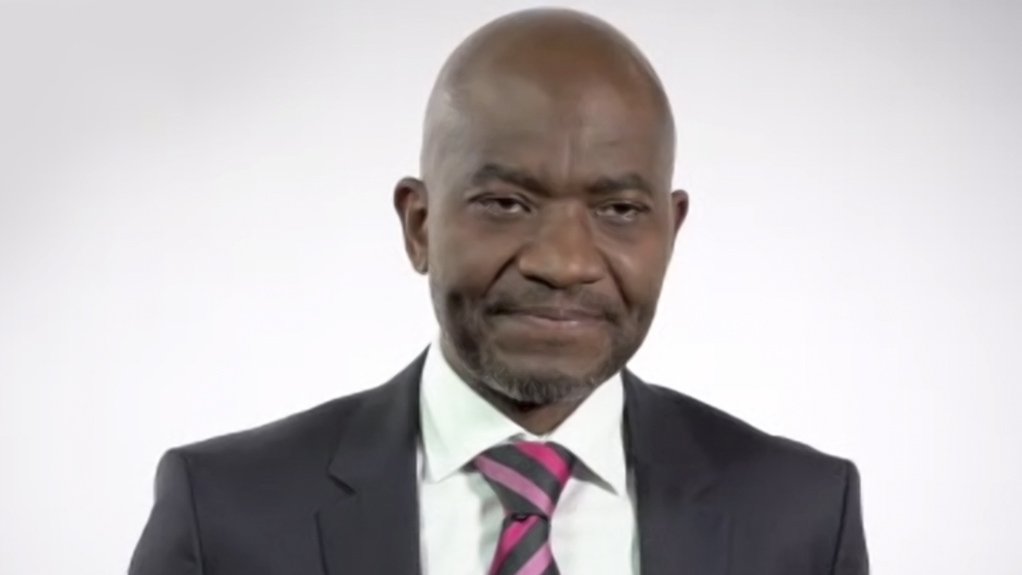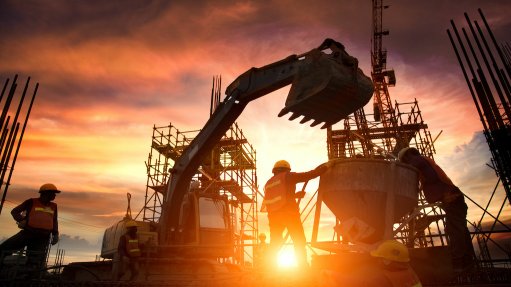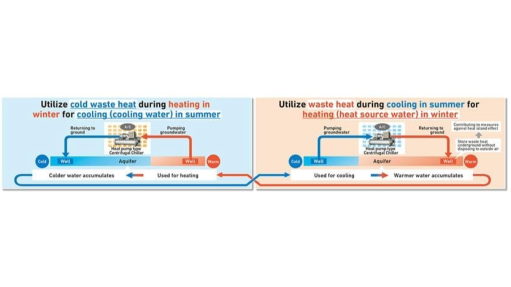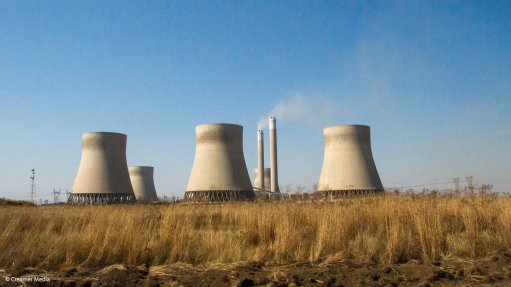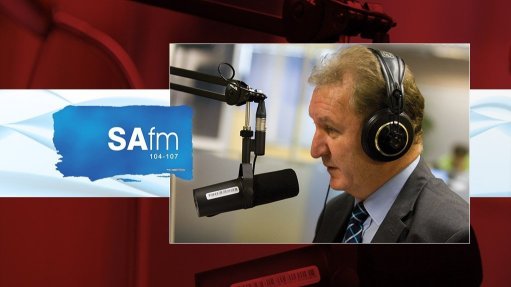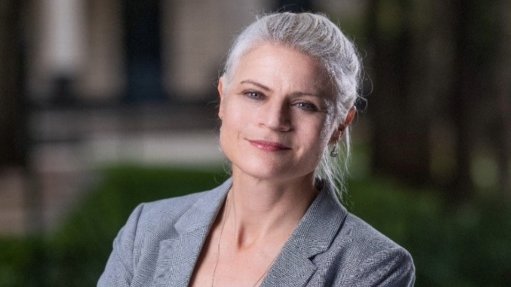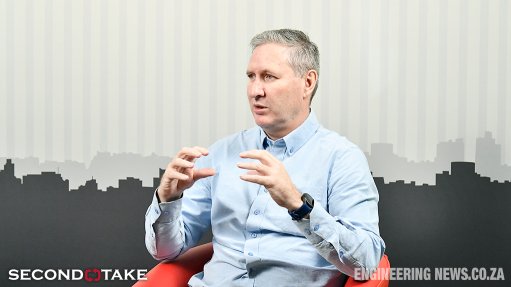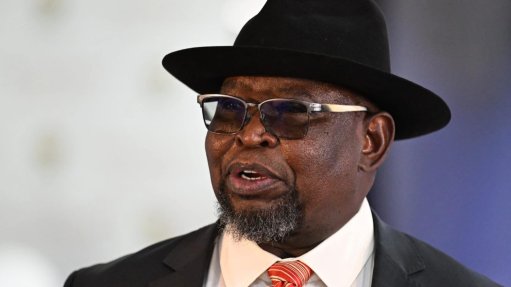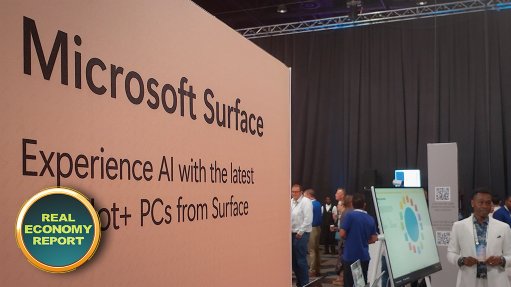IPP Office, Eskom in talks about navigating grid constraints ahead of next renewables round
There were two main challenges South Africa faced, in addressing its inadequate electricity generation capacity, Independent Power Producers (IPP) Office head Bernard Magoro highlighted at the RES4Africa conference in Cape Town, on Monday. They were the fast-tracking of approvals by government, and capacity constraints in the country’s national grid.
The IPP Office is an agency of the national government, established to procure mainly electricity generation capacity from independent power producers, as well as provide advisory services.
“We need to move with speed and scale,” he affirmed. “We need to be innovative in how we do things.” The country had an electricity generation “gap” of 6 000 MW that had to be filled.
There had to be a focus on the expediting of permits. It should not take an IPP 300 days to get environmental permissions.
Further, given government’s limited financial resources, government guarantees to IPPs might have to be reduced in future, he indicated.
“Grid stability is a real issue,” he pointed out. “How are we going to manage these grid issues, going forward?”
There was also the issue of grid capacity. Currently, the grid had spare capacity of only 17 GW.
These constraints came to the fore in December when only five preferred bidders were selected during Bid Window 6 (BW6) of the Renewable Energy Independent Power Producer Procurement Programme (REIPPPP), because of capacity constraints in the national grid. Since the announcement of the outcome of BW6, the IPP Office had had a lot of discussions with Eskom, Magoro reported.
New transmission lines had to be put in, he stated, in parallel with the construction of new IPP plants, so that the transmission line would be ready when the IPP plant started operating. It was, however, encouraging that government entities were working together to solve the grid problem.
BW7 would be released as soon as possible, with discussions under way on how to navigate the grid issues. It was possible that a spatial component might be introduced, limiting bids only to those areas where grid capacity was currently in place.
Nevertheless, the country had created, from scratch, an ecosystem, including skills, that had allowed the IPP sector to flourish. Over the past ten years, R330-billion had been invested in the REIPPPP. In terms of generating capacity, 12 GW had been committed, of which 6 GW had actually been set up.
As for the future, the IPP Office had been instructed to acquire 28 GW. That should, he noted, provide certainty for investors.
The office had recently released the first phase of its battery storage programme, he pointed out. The second phase would be released within a few months. It also had a programme to acquire 3 GW of gas-powered generation, but limited port capacity was a problem.
Magoro expressed the view that private- and public-sector electricity generation would run in parallel for some time yet. “We have a lot of customers who still need to be served,” he observed. “Let’s manage this transition in a way that doesn’t give us any more problems.”
He highlighted that the REIPPPP had already brought socioeconomic benefits, especially in the communities where the IPP projects were located. “As a country, we cannot afford to leave the majority of the people behind.”
Comments
Press Office
Announcements
What's On
Subscribe to improve your user experience...
Option 1 (equivalent of R125 a month):
Receive a weekly copy of Creamer Media's Engineering News & Mining Weekly magazine
(print copy for those in South Africa and e-magazine for those outside of South Africa)
Receive daily email newsletters
Access to full search results
Access archive of magazine back copies
Access to Projects in Progress
Access to ONE Research Report of your choice in PDF format
Option 2 (equivalent of R375 a month):
All benefits from Option 1
PLUS
Access to Creamer Media's Research Channel Africa for ALL Research Reports, in PDF format, on various industrial and mining sectors
including Electricity; Water; Energy Transition; Hydrogen; Roads, Rail and Ports; Coal; Gold; Platinum; Battery Metals; etc.
Already a subscriber?
Forgotten your password?
Receive weekly copy of Creamer Media's Engineering News & Mining Weekly magazine (print copy for those in South Africa and e-magazine for those outside of South Africa)
➕
Recieve daily email newsletters
➕
Access to full search results
➕
Access archive of magazine back copies
➕
Access to Projects in Progress
➕
Access to ONE Research Report of your choice in PDF format
RESEARCH CHANNEL AFRICA
R4500 (equivalent of R375 a month)
SUBSCRIBEAll benefits from Option 1
➕
Access to Creamer Media's Research Channel Africa for ALL Research Reports on various industrial and mining sectors, in PDF format, including on:
Electricity
➕
Water
➕
Energy Transition
➕
Hydrogen
➕
Roads, Rail and Ports
➕
Coal
➕
Gold
➕
Platinum
➕
Battery Metals
➕
etc.
Receive all benefits from Option 1 or Option 2 delivered to numerous people at your company
➕
Multiple User names and Passwords for simultaneous log-ins
➕
Intranet integration access to all in your organisation



